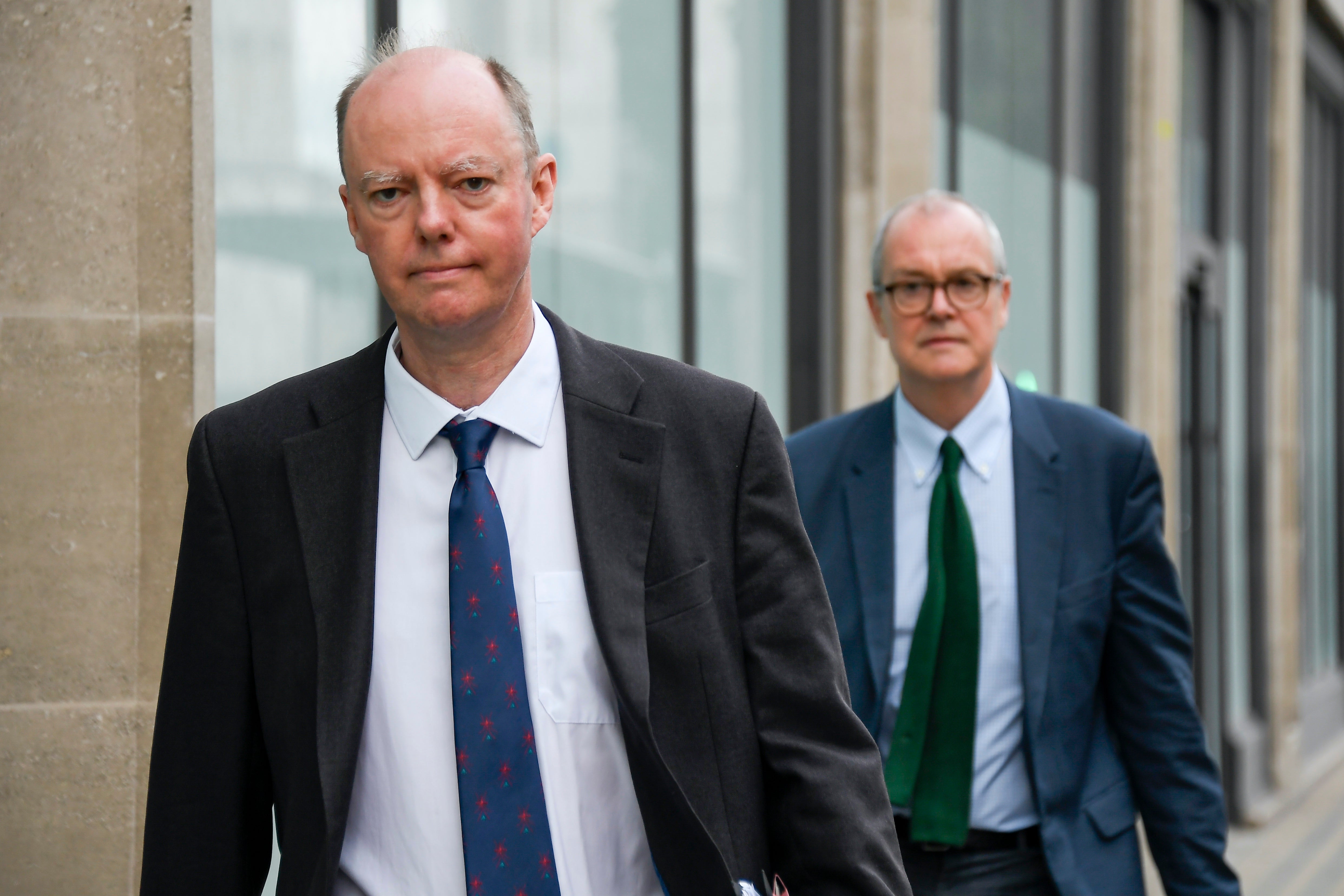Coronavirus: Internal emails reveal ‘herd immunity’ messaging chaos in government
No 10’s chief scientific adviser asked for help to ‘calm our academic friends down’ over controversial idea

Your support helps us to tell the story
From reproductive rights to climate change to Big Tech, The Independent is on the ground when the story is developing. Whether it's investigating the financials of Elon Musk's pro-Trump PAC or producing our latest documentary, 'The A Word', which shines a light on the American women fighting for reproductive rights, we know how important it is to parse out the facts from the messaging.
At such a critical moment in US history, we need reporters on the ground. Your donation allows us to keep sending journalists to speak to both sides of the story.
The Independent is trusted by Americans across the entire political spectrum. And unlike many other quality news outlets, we choose not to lock Americans out of our reporting and analysis with paywalls. We believe quality journalism should be available to everyone, paid for by those who can afford it.
Your support makes all the difference.Newly released emails have revealed the anger and alarm among the UK’s top scientists over the government’s exploration of “herd immunity” when dealing with initial outbreak of coronavirus earlier this year.
Boris Johnson’s chief scientific adviser Sir Patrick Vallance even had to ask for help in trying to “calm down” leading academics after he expressed his apparent support for the controversial idea in public.
The government has insisted herd immunity – the moment a high enough proportion of a population achieves immunity from a disease – was never official government policy or strategy.
Yet emails obtained by the BBC following a Freedom of Information request show Sir Patrick and chief medical officer Chris Whitty had discussed the concept.
In an email to Sir Mark Walport – his predecessor as chief scientific advisor – Sir Patrick suggested his remarks to the media on the subject had been taken out of context, and the message in response to criticisms should be that “herd immunity is not the strategy”.
In a separate email in March, Sir Patrick asked a government colleague: “Anything you can do to calm our academic friends down over herd immunity would be greatly appreciated.”
However, on 13 March, Sir Patrick had talked about herd immunity as an “aim” during an interview with BBC.
“Our aim is to try and reduce the peak … also, because the vast majority of people get a mild illness, to build up some kind of herd immunity so more people are immune to this disease and we reduce the transmission.”
On the same day he spoke on Sky News about his hope the virus could be controlled long enough to “allow enough of us who are going to get mild illness to become immune to this”.
When asked what proportion of the British population would need to get the virus for herd immunity to work, Sir Patrick said “probably around 60 per cent”.
In one internal email from April, Prof Whitty revealed his frustration when discussing a media report which suggested No 10 and their advisors “were absolutely focused on herd immunity”.
The chief medical officer complained he did not think immunity was “a sensible aim of policy” and he had only talked about the concept because he had been answering “questions put to me by ministers”.
In a separate email to the president of the Faculty of Public Health, Prof Whitty insisted: “The government had never pursued a ‘herd immunity strategy’.”
Speaking on Sky News on Wednesday, Professor Devi Sridhar, scientific advisor to Scotland’s first minister Nicola Sturgeon, said herd immunity was simply not a useful concept in dealing with a pandemic like the coronavirus.
“I would say the majority of scientists are aligned that maximum suppression of this virus is the optimal strategy,” said the chair of global public health at the University of Edinburgh.
“There’s a small group of very vocal scientists who are advocating what you could call herd immunity,” Prof Sridhar added.
“But I would just push back and say that we don’t have herd immunity against many infectious diseases that have been a problem for mankind for centuries like plague, cholera, malaria, measles, TB, and I could go on.”


Join our commenting forum
Join thought-provoking conversations, follow other Independent readers and see their replies
Comments